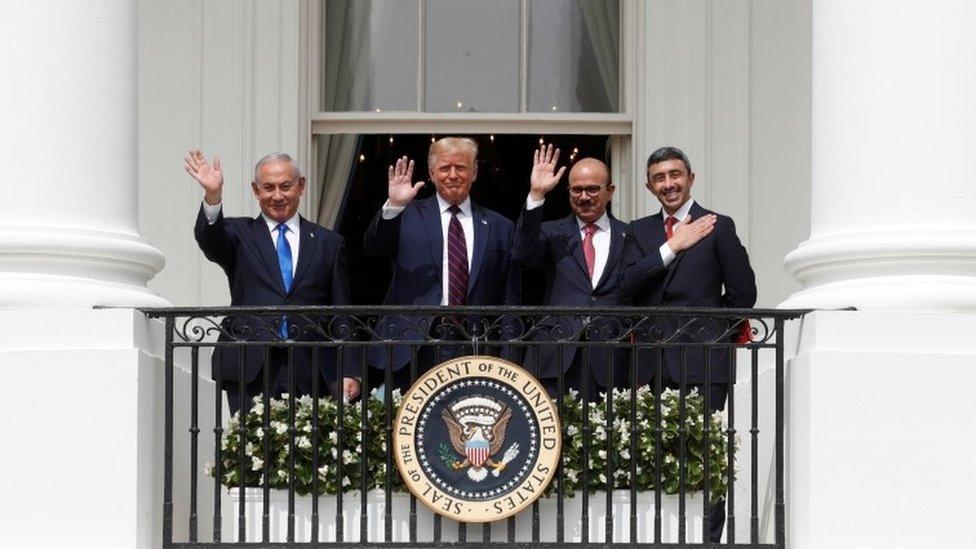US alters passport ruling for Jerusalem births
- Published

Previously passports of US citizens born in Jerusalem excluded Israel as their country of birth
Americans born in Jerusalem can declare Israel as their country of birth in US passports, the Trump administration says, in a reversal of US policy.
Before now, Jerusalem was identified without a country because of its contentious status as Israel's self-declared capital.
The latest move further cements Donald Trump's 2017 recognition of Israeli sovereignty over the entire city.
Palestinians claim the occupied East as the capital of a hoped-for state.
President Trump's decision to recognise Jerusalem as Israel's capital broke with decades of US policy and was met with outrage across the Arab world.
Why the ancient city of Jerusalem is so important
Israel occupied East Jerusalem in the 1967 Middle East war and later effectively annexed it in a move not recognised internationally.
The fate of the city is one of the most heated issues between Israel and the Palestinians, with both sides having agreed to negotiate over it in the last stage of peace talks.
More than 25 years of on-off peace talks have never reached that stage.
The issue of whether Jerusalem-born Americans had the right to declare Israel as their country of birth on their passports reached the US Supreme Court in 2015. It ruled that it was not permissible, saying only the president had the right to effect the change.
US Secretary of State Mike Pompeo announced the new position on Twitter:
Allow X content?
This article contains content provided by X. We ask for your permission before anything is loaded, as they may be using cookies and other technologies. You may want to read X’s cookie policy, external and privacy policy, external before accepting. To view this content choose ‘accept and continue’.

The latest move comes a week before the US elections, in which Republican Donald Trump is standing against Democrat Joe Biden.
Mr Biden has said he disapproves of the relocation by the US of its embassy from Tel Aviv to Jerusalem in 2018 but says he will not reverse the step.
The Palestinians have accused President Trump of bias towards Israel and froze relations with his administration in response to his recognition of Jerusalem as Israel's capital.
In January, Mr Trump unveiled a roadmap for peace between Israel and the Palestinians which did not advocate a two-state solution - a formula supported by the international community which envisages an independent Palestinian state existing alongside Israel.
Mr Biden has said a two-state solution should remain on the table.
This week, a poll of Arabs in 18 countries across the Middle East and North Africa suggested neither Mr Trump nor Mr Biden were considered good for the region, though most respondents favoured a Biden presidency.
- Published6 December 2017
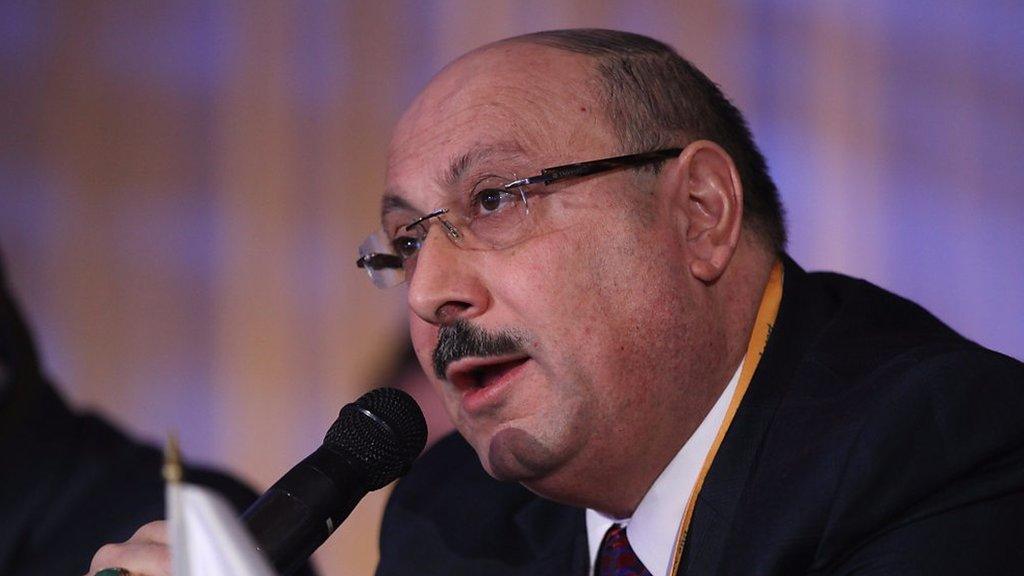
- Published27 October 2020

- Published15 September 2020
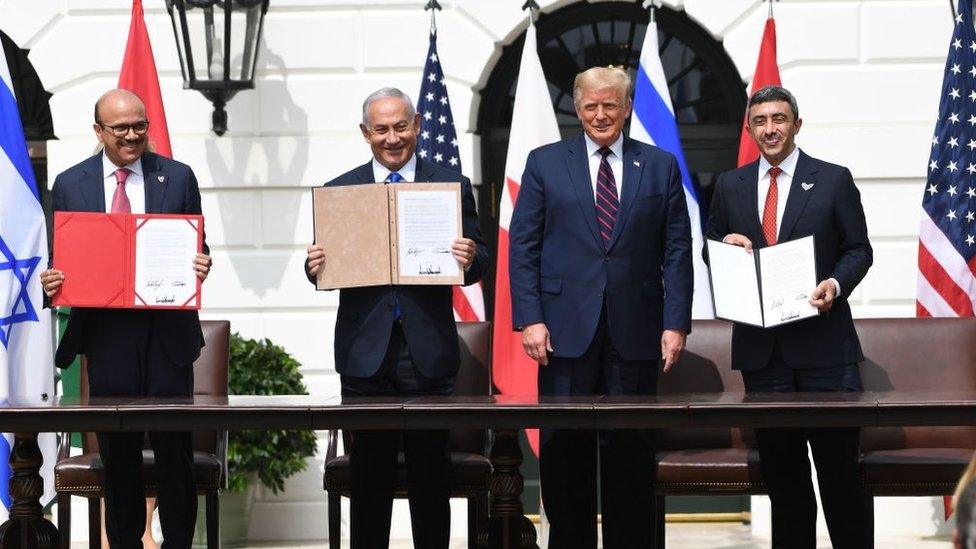
- Published15 September 2020
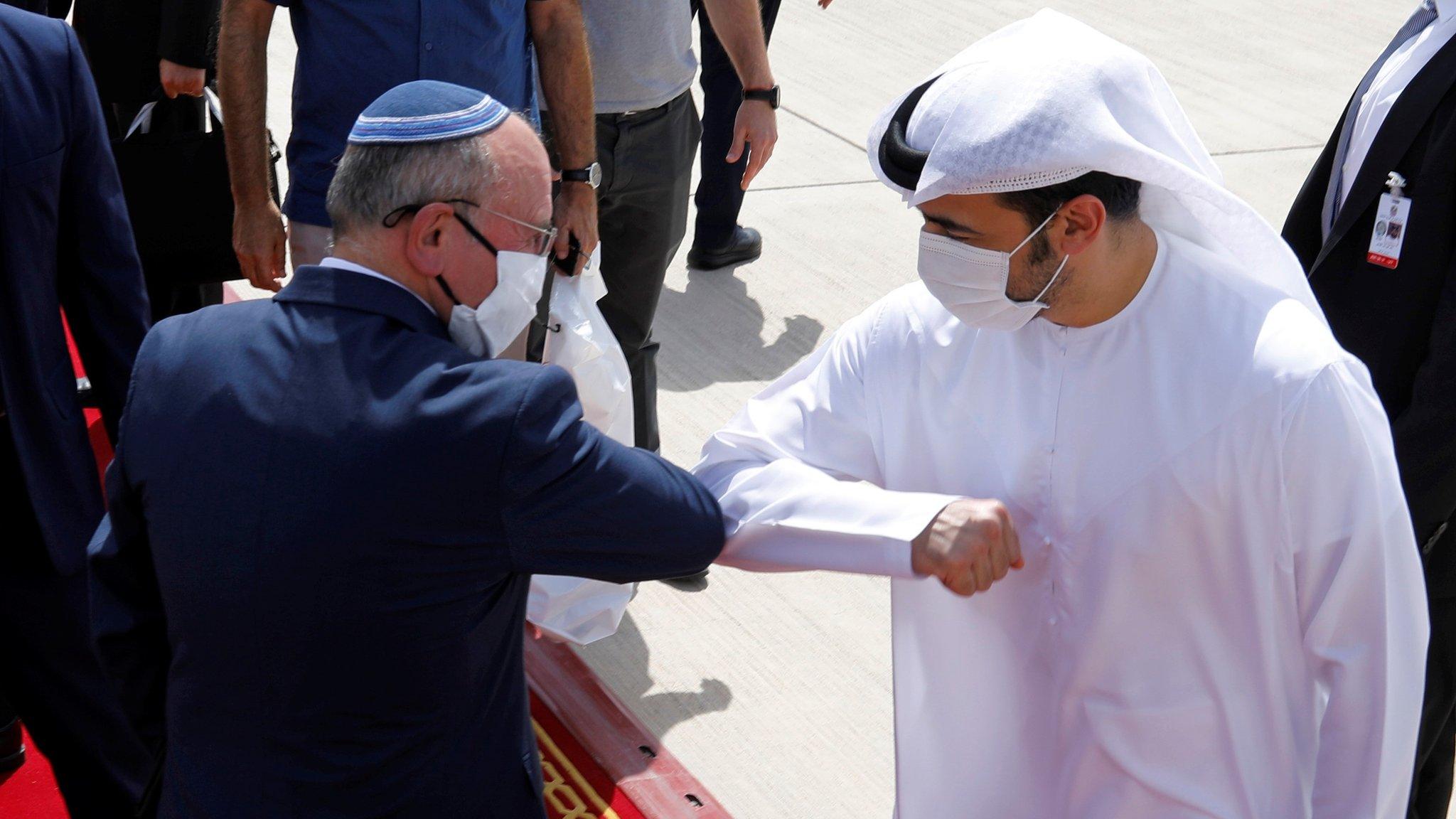
- Published15 September 2020

- Published18 August 2020
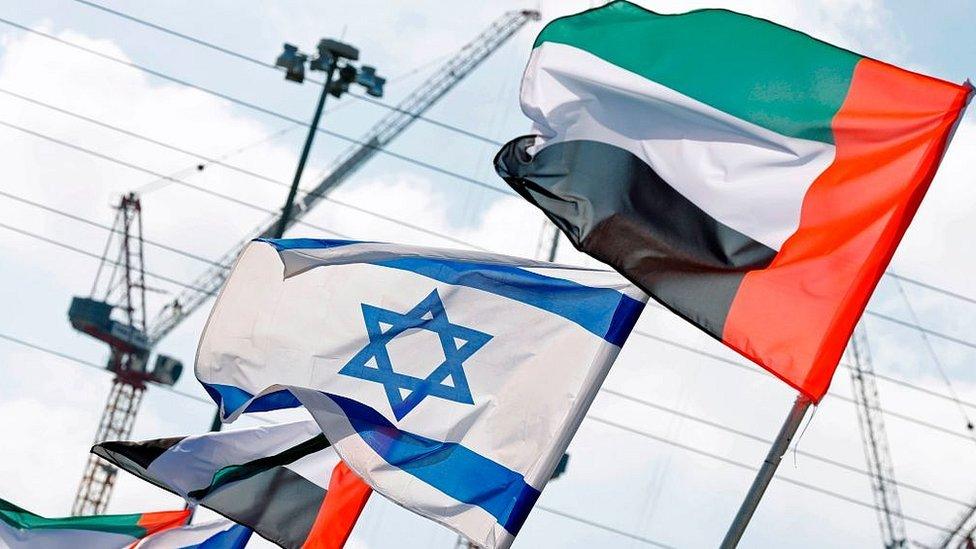
- Published13 August 2020
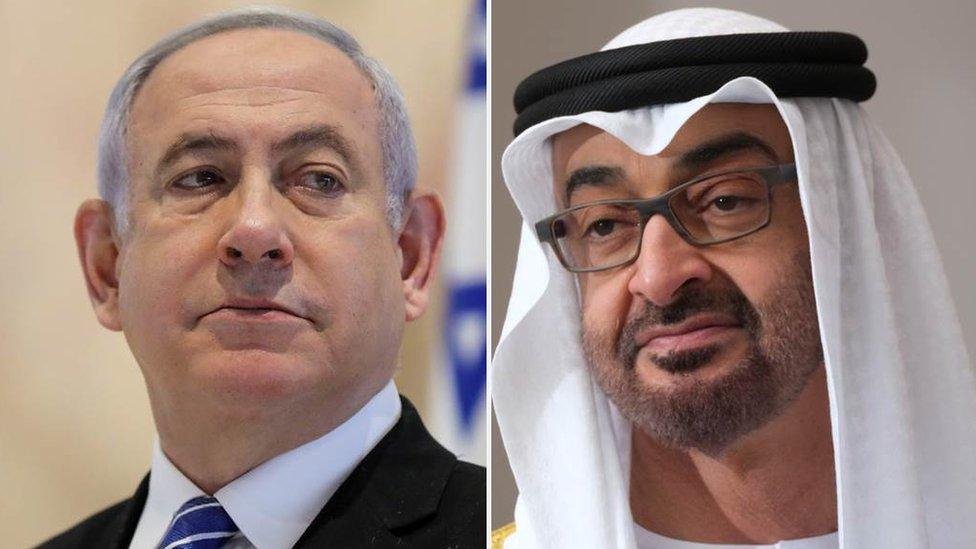
- Published31 August 2020

- Published29 January 2020

- Published14 May 2018
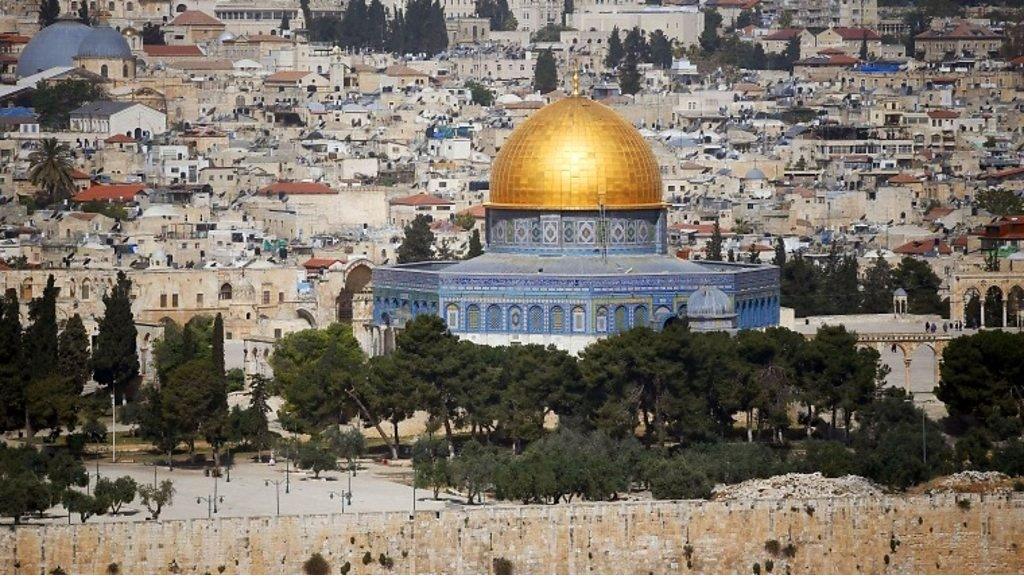
- Published15 September 2020
